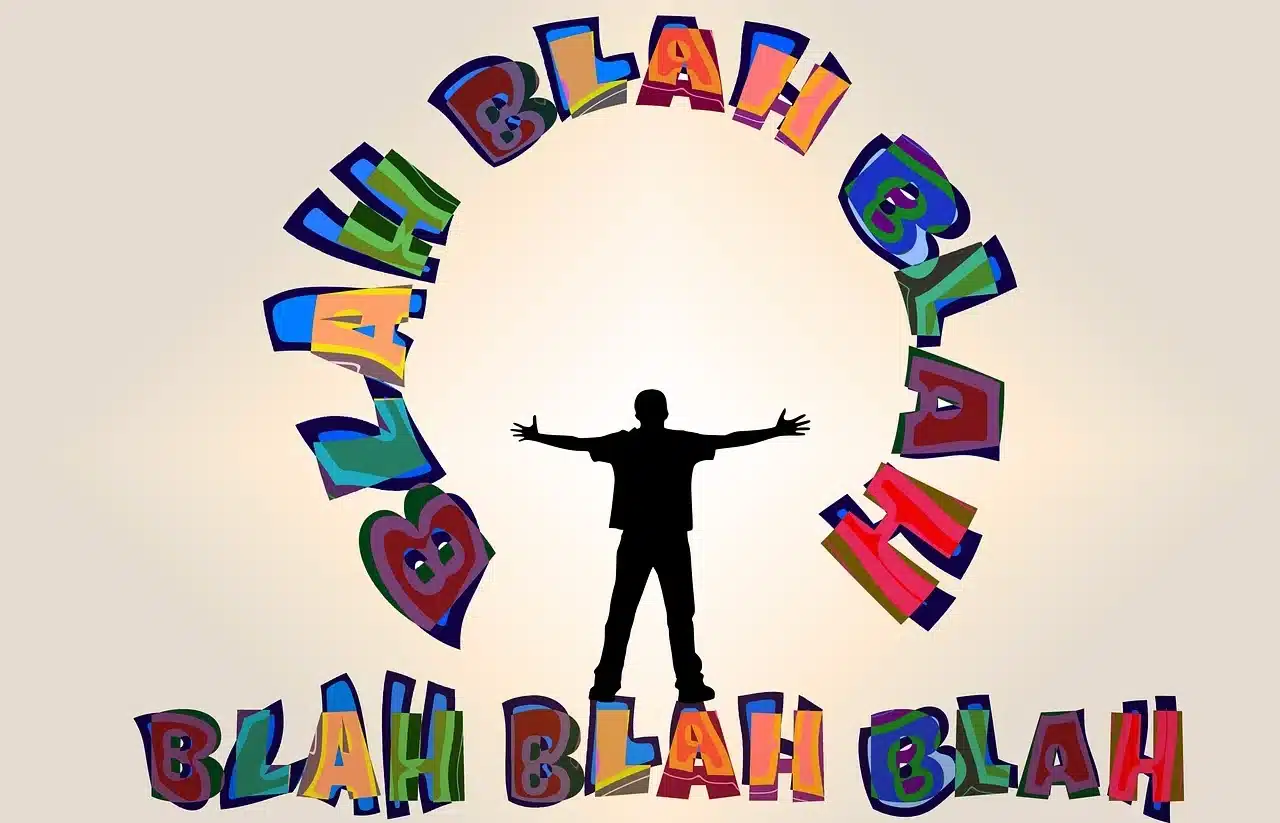
Verbosity refers to the abundance of terms when speaking.
Verbosity is an idea that refers to the abundance of terms and concepts pronounced when speaking . The concept is linked, in this way, to excessive verbosity .
For example: "The governor once again showed his verbosity when making a four-hour speech" , "My son-in-law is not characterized by verbosity, but he is a good boy" , "The girl's verbosity surprised the jury" .
A verbose person, therefore, talks a lot. You have a tendency to start conversations and respond with multiple details, unlike those who are brief or silent. Individuals who show their verbosity in conversations usually share all their thoughts, provide personal information and ask all kinds of questions to their interlocutor.
Examples of verbiage
Suppose a woman asks a neighbor how she is. The interlocutor demonstrates her verbosity instantly: «The truth is that I'm doing very well, thank you for asking! Luckily I was able to cure myself of a discomfort that I had had for a few weeks: the doctor prescribed me an antibiotic and everything was solved. I am also happy because my son has just graduated... he is now a lawyer! I'm sure he will become a great professional. Tonight we will all have dinner together at my house, to celebrate. "I'm going to make homemade noodles." As you can see, the woman could have simply responded "I'm very well, thank you," but she chose to provide different information to her neighbor.
In many areas, verbosity is an appreciated quality. A television host and a salesman must be verbose to do their jobs successfully. A librarian , on the other hand, may have to limit his or her verbiage to carry out his or her work activity efficiently.

Verbosity is a positive characteristic in many areas.
The eloquence
Verbiage is often confused with eloquence , although there are clear differences between the two: eloquence is defined as the ability to speak or write effectively to persuade, move, or delight interlocutors.
Although both verbosity and eloquence depend in part on a special natural predisposition for oral communication , something that very few people have in each social group, the latter also requires a certain level of knowledge of the language : to express oneself effectively When speaking or writing, it is necessary to have a large vocabulary , as well as certain grammatical and semantic tools, so that it is possible to use words to create rich and varied speeches .
For this reason, verbosity is more common than eloquence , although both are closely connected. In fact, they share positive and negative aspects , both from the point of view of the subject who demonstrates these characteristics and of their audience.
Verbiage, something innate
People who talk a lot are necessary to "break the ice" and help the more shy ones to open up and communicate, but they can also stun others if they do not know how to measure themselves; Likewise, while many admire those who can express themselves fluently, there are also those who envy them.
But, no matter what the reaction or opinion of the environment, verbosity is not learned, but rather one is born with it , and it cannot be avoided: it is like sympathy or antipathy, grace or lack of spark. No matter how much someone tries to criticize a verbose person, they will not change, since they probably cannot - or want to - express themselves in any other way.
At the other extreme, individuals who never find the right words when conversing can also attract negative comments, even if they did not choose this difficulty. Just as verbosity does not necessarily demonstrate linguistic richness , clumsiness when speaking is not always related to the true knowledge of the speaker: in fact, many of the great writers "allow" their introversion to creep into their public presentations, and speak with a wealth much less than what they use in their works.
